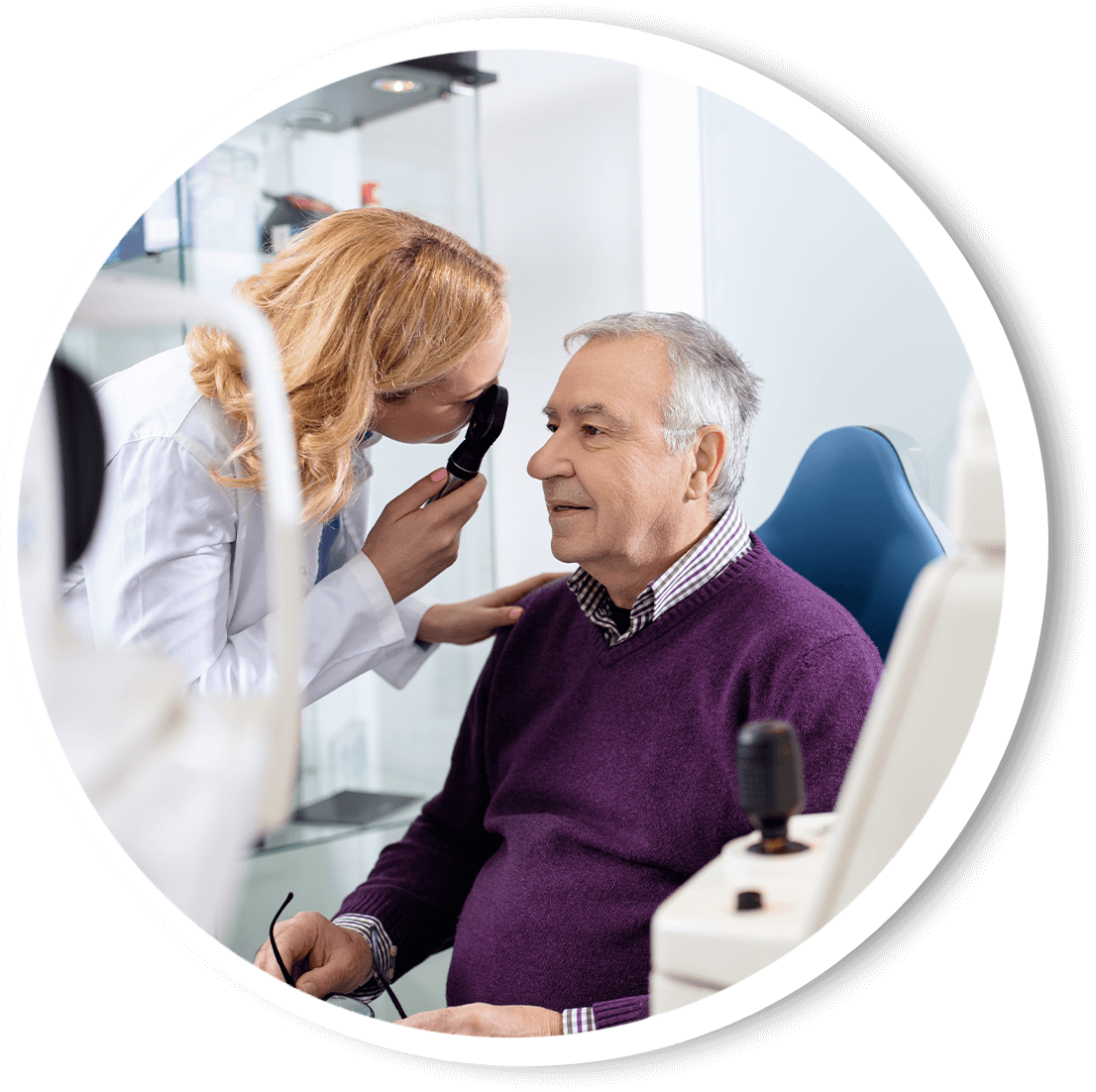Glaucoma Evaluation
Glaucoma Evaluation Services in Pensacola, Florida
Glaucoma is an eye disease that leads to progressive, irreversible vision loss. If you are currently suffering from glaucoma symptoms, now is the time to schedule a glaucoma evaluation. Gulf Coast Vision Center can help you identify glaucoma in the early stages before the optic nerve sustains any further damage.
Our eye doctors can perform a series of tests to detect your eye condition and determine the best treatment to prevent further damage. If you have high-risk factors such as diabetes, high blood pressure or a family history of glaucoma, you should talk to your doctor to schedule regular exams. To find out more about glaucoma evaluations and treatment, call Gulf Coast Vision Center at one of our locations in Pace, Crestview or Pensacola.

What is Glaucoma?
Glaucoma is a disease that damages your eye's optic nerve. It usually occurs due to fluid buildup in the front part of your eye. Excess fluid increases pressure in the eye, eventually leading to optic nerve damage. Since fluid buildup is gradual, you may not notice a decline in your vision until the condition's advanced stages.
Most people with glaucoma experience no pain or symptoms early on. Visit your eye doctor regularly so they can diagnose and treat glaucoma before you have long-term vision loss. If you lose partial vision, your doctor cannot restore it. However, lowering eye pressure can help you keep the sight you have. Most people with glaucoma who follow our treatment plan and have regular eye exams retain their vision.
Common Glaucoma Symptoms
Symptoms of glaucoma rarely occur, which is why it's important to have regular checkups with your optometrist.
When they are present, symptoms vary depending on the type of glaucoma you have and how far along the condition is. Common symptoms include:
|
|
|
|
|
|
|
|
Since glaucoma symptoms are similar to cataract symptoms, it is easy to confuse both conditions. However, there are some differences between glaucoma and cataracts. Glaucoma occurs when there is a buildup that causes pressure in the eye. By contrast, a cataract is a change in the eye lens. Both conditions can cause blurriness, headaches and other similar problems. however, they require different treatment.
Types of Glaucoma
Several types of glaucoma can affect your vision.
Open-Angle Glaucoma
Most people with vision problems suffer from open-angle glaucoma, which accounts for 90 percent of all glaucoma cases. When the drainage canals are clogged, it puts severe pressure on the eye and widens the angle between the cornea and the iris. Open-angle glaucoma develops slowly, making the symptoms hard to identify.
Angle-Closure Glaucoma
Angle-closure glaucoma happens when the drainage canals are blocked, causing a sudden increase in pressure. The pressure creates a more closed angle between the cornea and the iris. Unlike open-angle glaucoma, this condition can occur quickly. As a result, you will need to seek medical attention immediately.
Normal-Tension Glaucoma (NTG)
Not all forms of glaucoma occur as a result of high pressure. Normal or 'low' tension glaucoma is not caused by tension. Instead, an injury can lead to glaucoma even though the pressure is low. Even under normal pressure levels, a slight injury can trigger glaucoma.
Other Types of Glaucoma
- Irido Corneal Endothelial Syndrome (ICE)
- Neovascular Glaucoma
- Pigmentary Glaucoma
- Pseudoexfoliative Glaucoma
- Secondary Glaucoma
- Traumatic Glaucoma
- Uveitic Glaucoma
What Can You Expect During Glaucoma Evaluation?
During your glaucoma evaluation, we conduct a series of tests such as a visual field test, corneal thickness and angle test, optic nerve imaging and an eye pressure check. The eye pressure test is known as tonometry. We numb your eye and use a specialized tool to check your eye pressure. A visual field test gives us an idea of how much vision you have lost and will help us determine what type of treatment is suitable for your condition.
A comprehensive evaluation will also include a dilated eye exam. We dilate your eyes to get a magnified, 3D visualization of the optic nerve. The exam determines the condition of your optic nerves. Our eye doctors assess the shape, color, depth, size and vessels of the optic nerve. We also examine the central and peripheral retina.
Glaucoma Treatment Referrals
Gulf Coast Vision Center has a vast network of reputable surgeons and specialists who can handle complex eye procedures. Once we complete a thorough glaucoma evaluation, we refer you to an eye doctor that can treat your specific type of glaucoma. We walk you through the entire process from testing to surgical care, aftercare and post-op visits.
Contact Us for Glaucoma Evaluation
Contact Gulf Coast Vision Center today at one of our locations in Pace, Crestview or Pensacola for a glaucoma evaluation.
